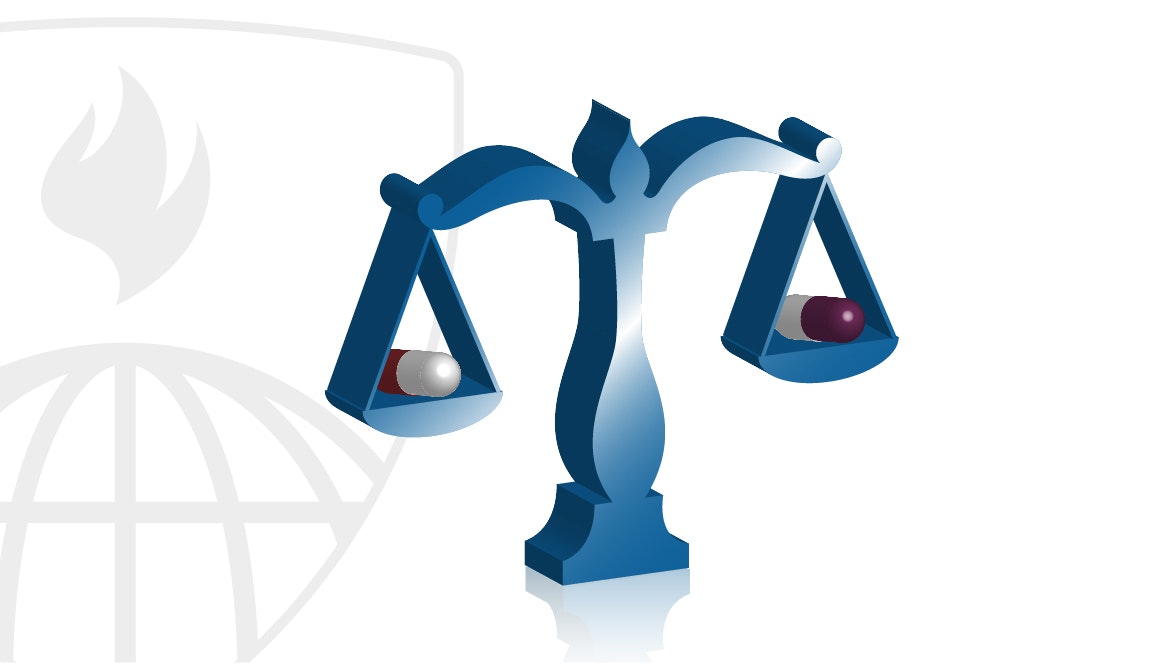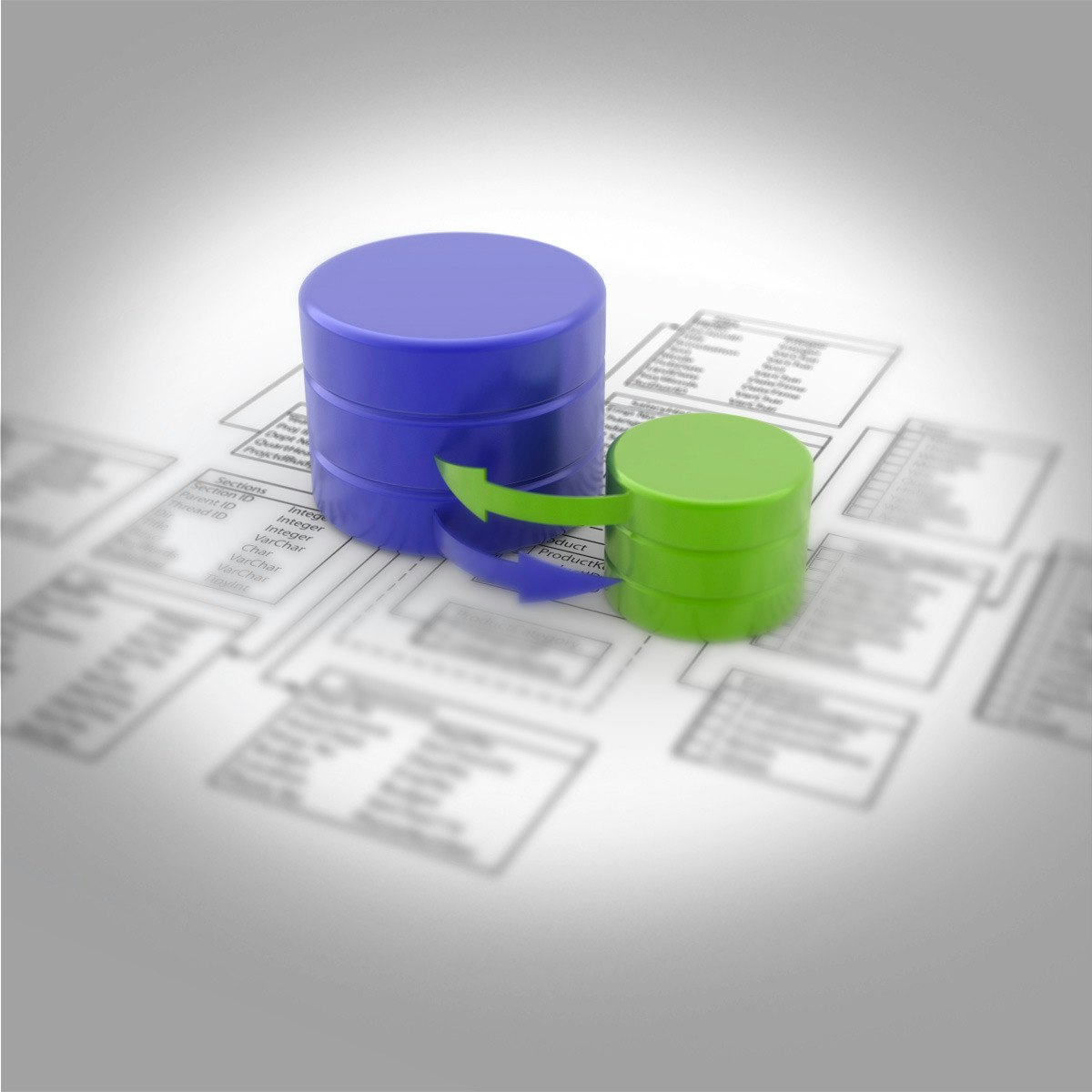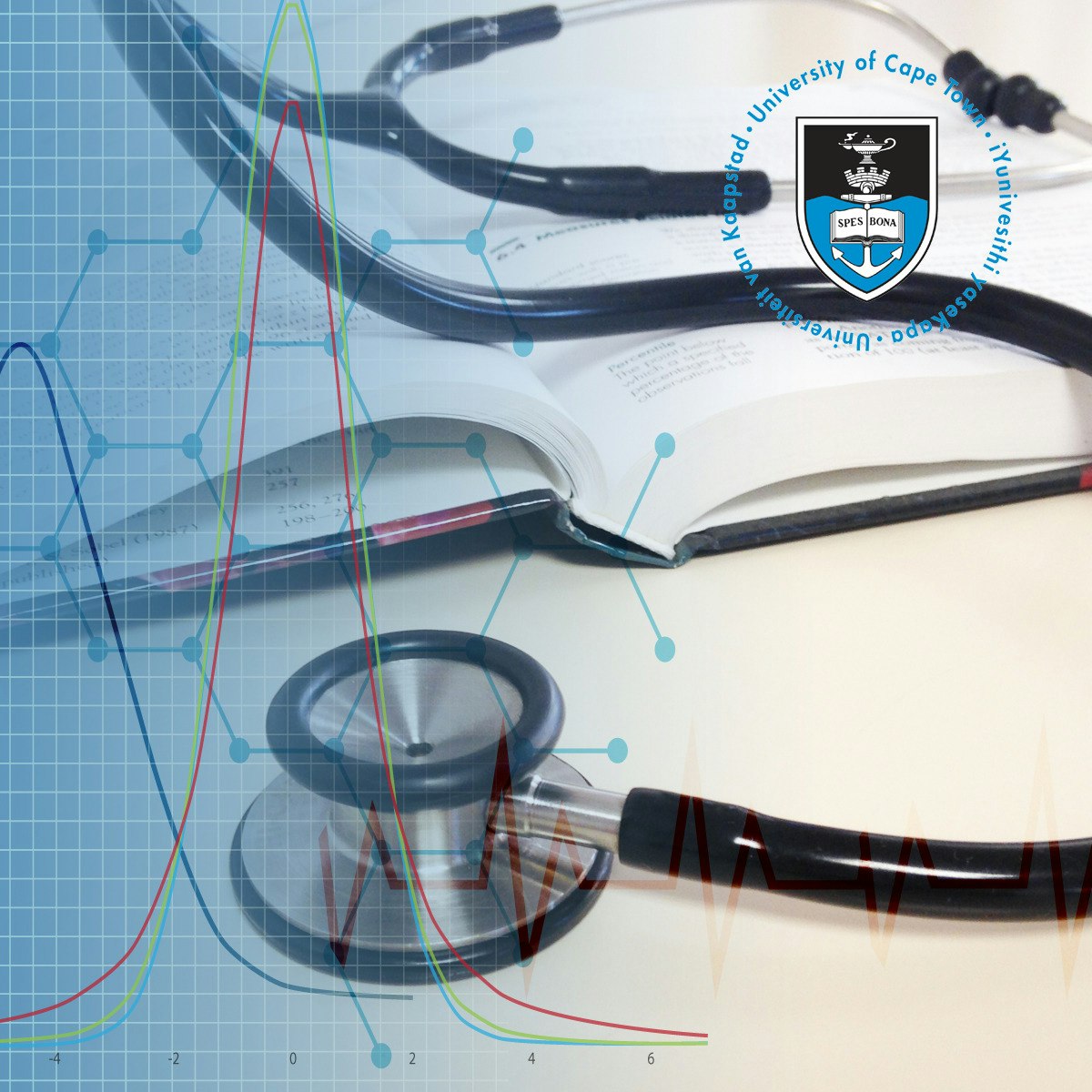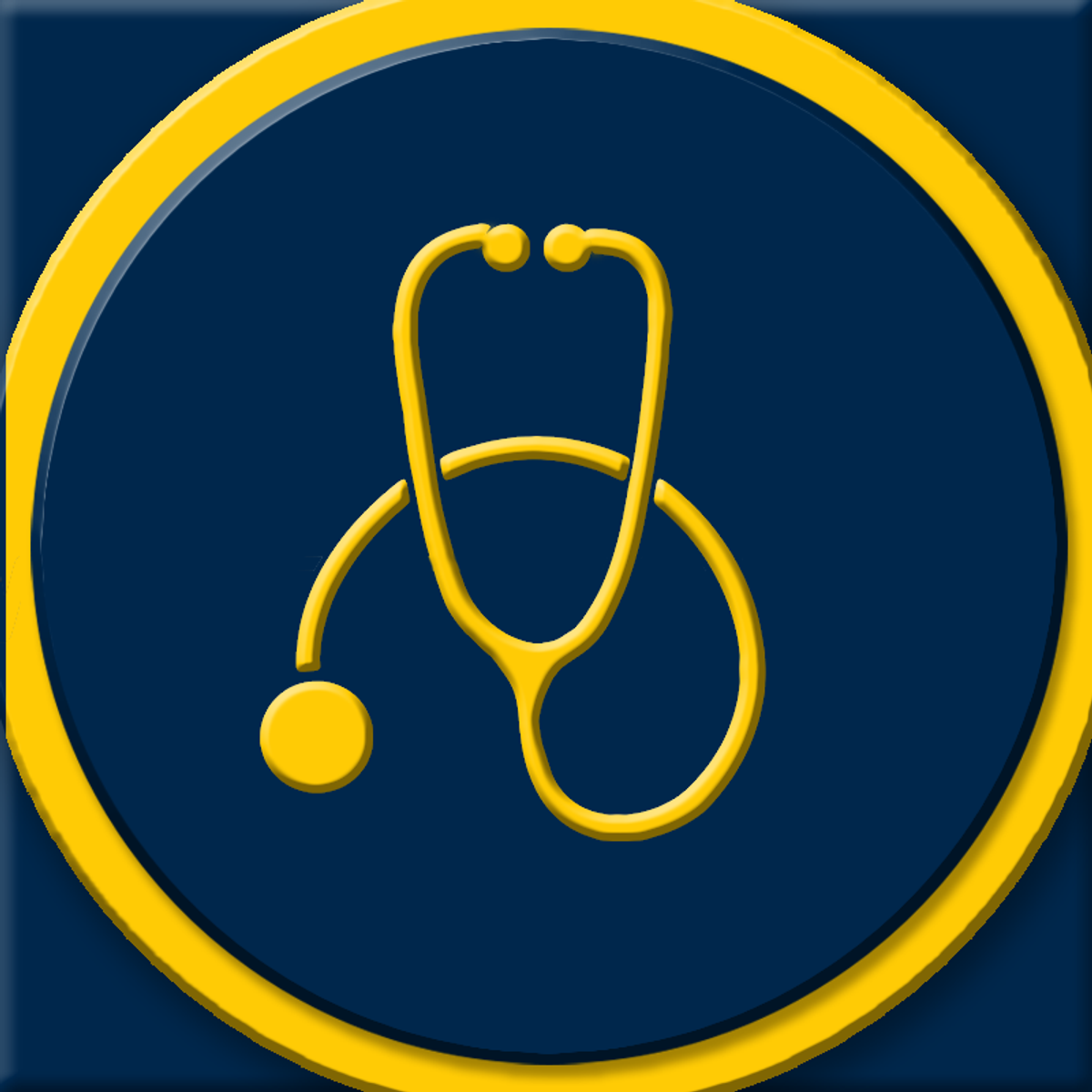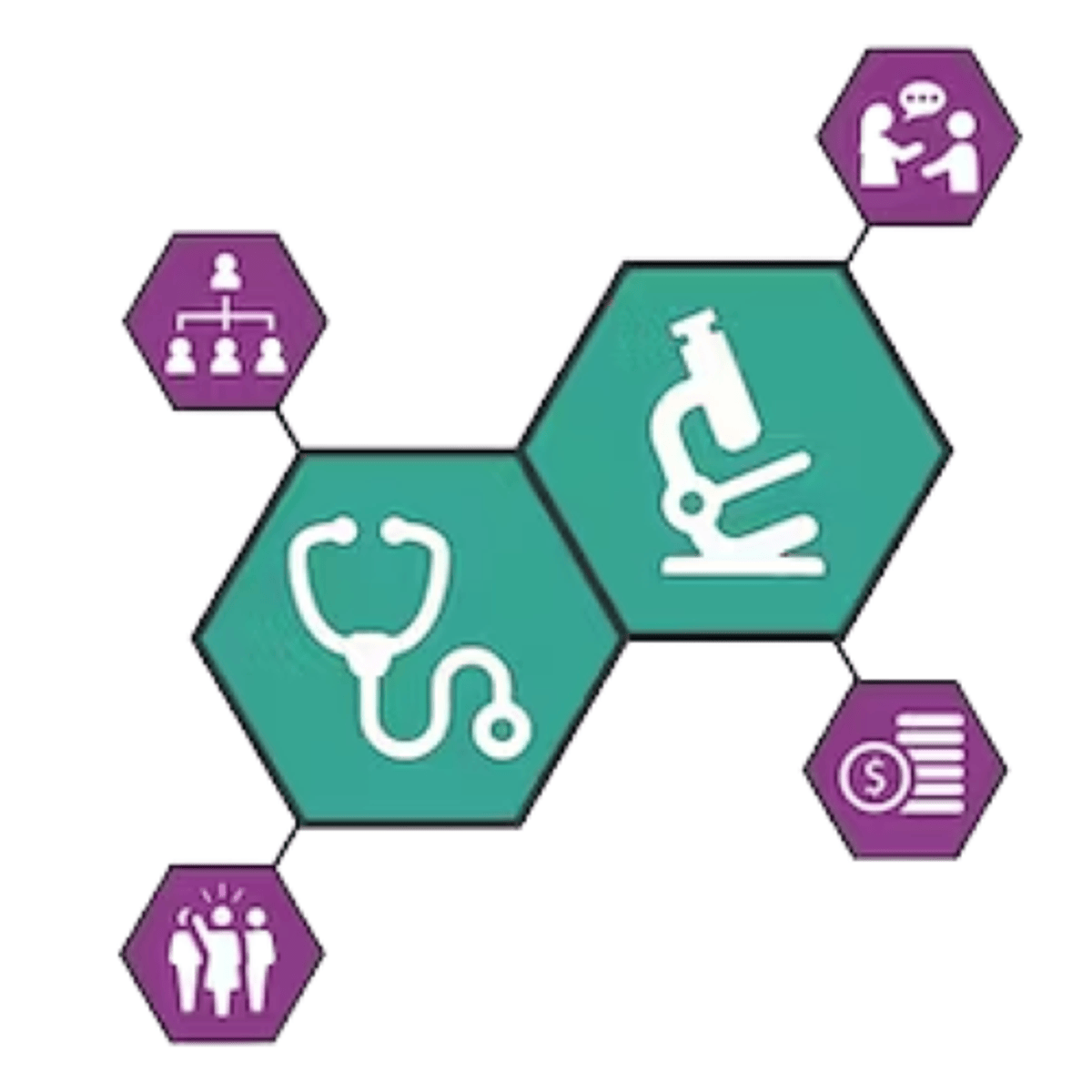Medical Writer
Comprehensive Guide to a Career as a Medical Writer
Medical writing is a specialized field dedicated to producing clear, accurate, and well-structured scientific and medical information for various audiences. This can range from detailed regulatory documents for government agencies to educational materials for patients and promotional content for new therapies. Essentially, a medical writer acts as a crucial bridge, translating complex data and research findings into understandable and actionable content.
The role is both challenging and rewarding, offering a unique blend of scientific understanding and communication artistry. Medical writers are integral to the dissemination of medical knowledge, playing a vital part in the development and launch of new treatments, the education of healthcare professionals, and the empowerment of patients. The ability to convey intricate information with precision and clarity is a hallmark of a successful medical writer.
Introduction to Medical Writing
At its core, medical writing involves the creation and editing of a wide array of documents within the healthcare and pharmaceutical sectors. This includes, but is not limited to, clinical trial reports, manuscripts for scientific journals, regulatory submissions, patient education brochures, and marketing materials for new drugs or medical devices. The primary objective is to communicate complex medical and scientific information in a manner that is not only accurate and clear but also tailored to the specific needs of the intended audience.
The field is dynamic and offers diverse opportunities. Imagine contributing to the documentation that helps bring a life-saving drug to market or crafting patient-friendly materials that explain a complex medical condition in simple terms. Medical writers often find deep satisfaction in knowing their work directly impacts medical advancements and public health understanding. This career path can be particularly engaging for those who possess a strong scientific aptitude coupled with a passion for language and communication.
Defining the Craft: What Medical Writers Do
A medical writer is responsible for researching, creating, and editing various scientific and medical documents. Their work ensures that information is presented logically, accurately, and in compliance with applicable regulations and guidelines. This involves a deep understanding of medical concepts, terminology, and research methodologies.
The scope of medical writing is broad, encompassing everything from highly technical regulatory documents to patient-facing educational materials and articles for medical journals. Medical writers must be adept at tailoring their writing style and content to suit diverse audiences, which can include regulatory authorities, physicians, scientists, and the general public.
Collaboration is a key aspect of this role. Medical writers often work closely with a variety of experts, including clinicians, researchers, statisticians, and regulatory affairs professionals, to ensure the accuracy and completeness of the documents they produce.
A Brief Look at the Evolution of Medical Communication
The field of medical writing has evolved significantly alongside advancements in medicine and technology. Historically, physicians and researchers were often solely responsible for documenting their findings. However, as medical research became more complex and the regulatory landscape more stringent, the need for specialized writing expertise grew.
The rise of the pharmaceutical industry and the increasing number of clinical trials further fueled the demand for skilled medical writers. These professionals became essential for navigating the intricate documentation requirements for drug and medical device approval. Furthermore, the digital age has expanded the avenues for medical communication, with a growing need for online content, plain-language summaries, and interactive materials.
Today, medical writing is a recognized profession with established standards and ethical guidelines, playing a critical role in the global healthcare ecosystem. The importance of clear, accurate, and ethical communication of medical information has never been greater.
Key Industries and Opportunities
Medical writers find employment across a diverse range of sectors. Pharmaceutical and biotechnology companies are major employers, relying on medical writers for documents throughout the drug development lifecycle. Contract Research Organizations (CROs), which manage clinical trials for pharmaceutical companies, also heavily depend on medical writers for preparing study-related documentation.
Academic institutions and research centers often employ medical writers to assist with grant proposals, research papers, and other scholarly publications. Medical communications agencies specialize in creating educational and promotional materials for the healthcare industry and are another significant source of opportunities. Additionally, government bodies, medical device companies, health insurance providers, and medical publishers utilize the skills of medical writers. The rise of freelance medical writing also offers flexibility and diverse project opportunities.
Differentiating Types of Medical Writing
Medical writing encompasses several distinct specializations, each with its own focus and audience. Regulatory medical writing involves creating documents required by health authorities like the U.S. Food and Drug Administration (FDA) or the European Medicines Agency (EMA) for the approval and monitoring of drugs and medical devices. This includes clinical study protocols, investigator brochures, clinical study reports (CSRs), and submission dossiers.
Scientific medical writing focuses on producing content for peer-reviewed journals, scientific conferences, and other academic outlets. This can involve writing original research manuscripts, review articles, abstracts, and poster presentations. The goal is to disseminate research findings to the scientific community.
Marketing medical writing, also known as promotional writing or medico-marketing, involves creating materials to promote pharmaceutical products, medical devices, or healthcare services. This type of writing must adhere to strict advertising regulations and ethical guidelines. Examples include sales aids, website content, and brochures for healthcare professionals or patients. Other areas include medical journalism, which targets the general public, and developing educational materials for patients or healthcare professionals.
Key Responsibilities of a Medical Writer
The day-to-day tasks of a medical writer are varied and intellectually stimulating. A core responsibility involves crafting a wide array of documents, each tailored to a specific purpose and audience. They are adept at navigating complex scientific data and transforming it into clear, concise, and accurate written materials.
Collaboration is another cornerstone of the profession. Medical writers work in tandem with diverse teams, including clinicians, researchers, statisticians, and regulatory specialists, to ensure the scientific integrity and clarity of the documents they produce. This often involves interpreting and simplifying complex information for different reader groups, from highly specialized regulatory reviewers to patients seeking to understand their treatment options.
A crucial aspect of the role is an unwavering commitment to ethical guidelines and compliance standards. Medical writers must ensure that all information presented is accurate, balanced, and adheres to relevant industry regulations and publication ethics.
Crafting Diverse Medical Documents
Medical writers are responsible for producing a wide spectrum of documents essential to the healthcare and pharmaceutical industries. A significant portion of this work involves clinical trial documentation, such as Clinical Study Reports (CSRs), which provide comprehensive summaries of the methods and results of clinical trials. They also develop clinical trial protocols, outlining the objectives, design, methodology, statistical considerations, and organization of a trial.
Manuscripts for publication in peer-reviewed journals are another common output, where writers help researchers communicate their findings to the broader scientific community. This can also include creating abstracts and posters for scientific conferences. For patients, medical writers may develop patient narratives, which are individual accounts of a patient's experience during a clinical trial, or create patient information leaflets and educational brochures designed to be easily understood. Other documents include investigator's brochures, informed consent forms, and summaries of product characteristics.
To develop a foundational understanding of how clinical trials are designed and interpreted, which is crucial for writing many of these documents, aspiring medical writers might find the following course beneficial. It provides insights into the methodologies and analyses that underpin much of the data medical writers work with.
Understanding the process of systematic reviews and meta-analyses is also valuable, as these are common types of scientific publications medical writers may be involved in producing. This course offers a comprehensive introduction.
Interdisciplinary Collaboration and Communication
Effective collaboration is paramount in medical writing. Medical writers rarely work in isolation; instead, they are integral members of multidisciplinary teams. They liaise extensively with clinicians who conduct research, scientists who develop new therapies, and statisticians who analyze data. This interaction ensures that the scientific information is accurately represented and appropriately contextualized.
Communication with regulatory teams is also crucial, particularly for writers specializing in regulatory documentation. They must ensure that all documents meet the stringent requirements of bodies like the FDA and EMA. This involves a keen understanding of regulatory guidelines and the ability to present information in a way that facilitates review and approval processes.
Strong interpersonal and communication skills are therefore as important as writing prowess. The ability to ask insightful questions, actively listen, and integrate feedback from various stakeholders is essential for producing high-quality medical documents.
For those looking to enhance their communication skills, particularly in a health context, this course can provide valuable foundational knowledge.
Simplifying Complexity: Data Interpretation and Audience Adaptation
A core skill of a medical writer is the ability to interpret complex scientific and clinical data and present it in a clear, concise, and understandable manner. This often involves translating technical jargon and statistical findings into language that is appropriate for the intended audience, which can range from expert regulatory reviewers and physicians to patients and the general public.
For example, when writing a clinical study report for a regulatory agency, the language will be highly technical and detailed. In contrast, when developing a patient education brochure, the information must be presented in simple, accessible terms, avoiding overly complex medical terminology. This requires not only strong writing skills but also a deep understanding of the subject matter and the ability to anticipate the audience's level of knowledge and information needs.
The effective presentation of data, often through tables, graphs, and figures, is another important aspect. Medical writers must be able to work with data visualization tools and present quantitative information in a way that is both accurate and easy to interpret.
Gaining a solid understanding of medical terminology is a fundamental step for any aspiring medical writer. This course provides a straightforward introduction to the language of medicine.
Upholding Ethical Standards and Regulatory Compliance
Medical writing is a field governed by strict ethical principles and regulatory requirements. Adherence to guidelines such as those from the International Committee of Medical Journal Editors (ICMJE) and Good Publication Practice (GPP3) is paramount. These guidelines address issues such as authorship, data transparency, plagiarism, and conflicts of interest, ensuring the integrity and credibility of medical publications.
Medical writers have a responsibility to ensure that the information they present is accurate, balanced, and not misleading. This is particularly critical in regulatory writing, where documents form the basis for drug and device approvals, and in promotional writing, where marketing claims must be substantiated by evidence and comply with advertising regulations.
Understanding and applying these ethical and regulatory frameworks is a core competency for medical writers. It involves staying updated on evolving guidelines and maintaining a high level of professionalism and integrity in all aspects of their work.
Familiarity with Good Clinical Practice (GCP) is also essential, as it provides the international ethical and scientific quality standard for designing, conducting, recording, and reporting trials that involve human subjects. This course provides an introduction to GCP.
Essential Skills for Medical Writers
A successful career in medical writing hinges on a unique blend of scientific knowledge, writing proficiency, and meticulous attention to detail. While a strong foundation in life sciences is often a prerequisite, the ability to communicate complex information clearly and accurately is equally crucial. This section delves into the core competencies that aspiring and established medical writers need to cultivate.
Beyond the technical aspects, soft skills such as critical thinking, problem-solving, and effective time management are also highly valued. The ability to work collaboratively within multidisciplinary teams and adapt to diverse project requirements and audiences further enhances a medical writer's effectiveness and career prospects.
Scientific Acumen and Subject-Matter Expertise
A strong foundation in scientific principles and an understanding of medical concepts are fundamental for a medical writer. While it's not always necessary to be an expert in every therapeutic area, a general scientific literacy allows writers to grasp complex research, understand clinical data, and communicate effectively with subject-matter experts. Many medical writers possess advanced degrees in life sciences, medicine, pharmacy, or related fields, which provides them with a solid understanding of research methodology and data interpretation.
Subject-matter expertise can be developed over time through experience and continuous learning. Focusing on specific therapeutic areas can also be beneficial, allowing writers to build deeper knowledge and become more valuable to clients or employers in those niches. Staying abreast of the latest research, medical advancements, and treatment guidelines is an ongoing requirement in this field.
For individuals looking to bolster their scientific literacy, courses focusing on specific diseases or medical fields can be very helpful. For example, understanding cancer biology is crucial for many medical writing roles.
Similarly, knowledge of infectious diseases is broadly applicable.
Courses that explain the scientific process and how to evaluate scientific communication can also be invaluable.
Mastery of Technical Writing and Editorial Precision
Exceptional writing and editing skills are the cornerstone of medical writing. This goes beyond general writing ability; it involves a specific proficiency in technical writing – the art of conveying complex information with clarity, precision, and objectivity. Medical writers must be adept at structuring documents logically, using precise language, and ensuring grammatical accuracy.
Attention to detail is paramount. Medical documents often contain critical information where even minor errors can have significant consequences. Therefore, meticulous proofreading and editing are essential components of the medical writer's workflow. This includes verifying the accuracy of data, ensuring consistency in terminology and formatting, and adhering to specific style guides.
Developing these skills often involves practice, feedback, and a commitment to continuous improvement. Many successful medical writers have a passion for language and a dedication to producing high-quality, error-free work.
Courses focused on effective research paper writing can help hone these technical writing skills.
For those looking to develop advanced technical writing capabilities, specialized courses can be beneficial.
General courses on writing in the sciences also provide a strong foundation.
The following books offer comprehensive guidance on evidence-based practices and statistical reasoning, which are crucial for accurate medical writing.
Navigating the Regulatory Landscape: ICH, FDA, and EMA Guidelines
For medical writers involved in regulatory documentation, a thorough understanding of relevant guidelines is non-negotiable. Key regulatory bodies such as the International Council for Harmonisation of Technical Requirements for Pharmaceuticals for Human Use (ICH), the U.S. Food and Drug Administration (FDA), and the European Medicines Agency (EMA) establish specific requirements for the content, structure, and format of documents submitted for drug and medical device approval.
Familiarity with ICH guidelines, which provide a unified standard for the European Union, Japan, and the United States, is particularly important. These guidelines cover various aspects of clinical trial conduct and reporting, ensuring quality, safety, and efficacy. Medical writers must be able to interpret and apply these complex regulations to ensure that submission dossiers are compliant and facilitate a smooth review process.
Staying current with changes in the regulatory landscape is an ongoing responsibility, as guidelines are periodically updated. Many medical writers specializing in this area pursue certifications or attend workshops to maintain their expertise in regulatory affairs.
Understanding the broader context of drug development is crucial for navigating regulatory requirements.
Courses on medical device regulation provide specific insights into this related area.
Proficiency with Essential Software and Tools
Modern medical writing relies on a variety of software and digital tools to enhance efficiency and accuracy. Proficiency in word processing software, particularly Microsoft Word, with its advanced features for formatting, tracking changes, and managing large documents, is essential. Many medical writers also utilize document management systems to organize and control versions of complex regulatory submissions or publication projects.
Reference management software, such as EndNote, Zotero, or Mendeley, is indispensable for managing citations and bibliographies, ensuring accuracy and consistency in referencing scientific literature. Familiarity with spreadsheet programs like Microsoft Excel for data handling and presentation can also be beneficial. Additionally, some roles may require experience with specific platforms used for electronic submissions to regulatory agencies (e.g., eCTD software).
As the field evolves, an openness to learning new technologies and software that can streamline the writing, editing, and collaboration process is a valuable asset for any medical writer. Understanding how to manage clinical research data is also becoming increasingly important.
Formal Education Pathways
Embarking on a career as a medical writer typically involves a strong educational foundation, often in the life sciences or a related field. While a specific "medical writing" degree is uncommon at the undergraduate level, certain academic paths provide the necessary scientific knowledge and analytical skills. Advanced degrees can further enhance a candidate's qualifications, particularly for roles requiring deep subject matter expertise or research experience.
Beyond traditional degrees, specialized certification programs and the development of a strong writing portfolio can significantly bolster an aspiring medical writer's credentials. This section explores the various educational routes and qualifications that can pave the way to a successful career in this field. It's encouraging for those considering a pivot that diverse backgrounds, when combined with a commitment to acquiring relevant skills, can lead to opportunities in medical writing.
Relevant Undergraduate Degrees
A bachelor's degree is generally considered the minimum educational requirement for entry-level medical writing positions. Degrees in the life sciences, such as biology, biochemistry, pharmacology, or biomedical science, provide a strong understanding of medical concepts and research principles. These programs typically include coursework in areas like physiology, anatomy, genetics, and statistics, which are highly relevant to medical writing.
Degrees in health sciences, nursing, or pharmacy also offer a solid foundation. Interestingly, some medical writers enter the field with backgrounds in journalism, English, or communications, particularly if they have a demonstrated interest in science and can showcase strong writing skills tailored to medical topics. Regardless of the specific major, developing excellent written communication skills and a keen eye for detail during undergraduate studies is crucial.
For those with a life science background, courses that focus on the cellular and tissue level of human biology can be particularly useful.
Understanding basic human anatomy across different body systems is also fundamental.
The Role of Advanced Degrees (MS/PhD)
While not always mandatory, an advanced degree, such as a Master of Science (MS) or a Doctor of Philosophy (PhD) in a biomedical field, can be a significant asset for a medical writer. Many employers, particularly in pharmaceutical companies and for roles involving complex research analysis or strategic publication planning, prefer candidates with postgraduate qualifications. A PhD, for instance, demonstrates a high level of research expertise, analytical skills, and the ability to critically evaluate scientific literature – all highly valuable in medical writing.
However, it's important to note that a PhD is not a universal requirement, and many successful medical writers have built fulfilling careers without one. Experience, a strong writing portfolio, and a demonstrated understanding of the field can often be equally, if not more, important. For those transitioning from academia, an advanced degree can provide a strong foundation, but it's the ability to adapt those research skills to the specific demands of medical writing that truly matters.
Individuals with advanced degrees often possess a deep understanding of research methodologies, which is critical for interpreting and presenting clinical trial data.
Certification Programs and Credentials
Several professional organizations offer certification programs and credentials that can enhance a medical writer's qualifications and demonstrate their expertise. The American Medical Writers Association (AMWA) offers a well-recognized AMWA certification, which signifies a high level of competence in medical writing. Similarly, the Board of Editors in the Life Sciences (BELS) offers certification for editors in the life sciences, which is also relevant for medical writers involved in editing.
Other certifications that can be beneficial include the Regulatory Affairs Certification (RAC) for those specializing in regulatory writing, and the Certified Medical Publication Professional (CMPP) credential offered by the International Society for Medical Publication Professionals (ISMPP), which is valuable for those working in medical publications. Good Clinical Practice (GCP) certification is also often required or highly recommended, as it demonstrates an understanding of ethical and scientific quality standards in clinical research.
While certifications are not always a strict requirement for employment, they can help writers stand out in a competitive job market and demonstrate a commitment to professional development. Many certification programs also offer valuable training and networking opportunities.
Building a Compelling Writing Portfolio
For aspiring medical writers, and even for experienced ones seeking new opportunities, a strong writing portfolio is often more persuasive than a resume alone. A portfolio showcases your writing skills, your ability to handle different types of medical documents, and your understanding of various therapeutic areas. It provides tangible evidence of your capabilities to potential employers or clients.
If you are new to the field, creating sample documents can be a good starting point. This could include writing a mock clinical study report based on publicly available data, drafting a patient education brochure on a common medical condition, or summarizing a complex research article for a lay audience. Volunteer to write for non-profit health organizations or contribute to university research blogs to gain practical experience and C.
Include a variety of pieces in your portfolio if possible, demonstrating your versatility. Ensure all samples are meticulously edited and error-free. If you have completed any relevant coursework or personal projects, these can also be valuable additions. Remember, the goal is to demonstrate your ability to communicate complex medical information clearly, accurately, and appropriately for the intended audience.
Career Progression in Medical Writing
A career in medical writing offers diverse pathways for growth and specialization. Entry-level positions provide foundational experience, and as writers gain expertise, they can advance to more senior roles with increased responsibility and complexity. The field also allows for specialization in areas like regulatory affairs, medical communications, or specific therapeutic areas.
For those with an entrepreneurial spirit, freelance medical writing presents an opportunity to build an independent career. Furthermore, the skills and knowledge acquired in medical writing can serve as a springboard to other roles within the pharmaceutical industry or related healthcare sectors. This section will explore typical career trajectories, specialization options, and leadership opportunities available to medical writers.
Starting Out: Entry-Level Roles and Expectations
Most individuals enter the medical writing field in roles such as Associate Medical Writer or Medical Writer. These positions typically involve supporting senior writers on various projects, learning the fundamentals of different document types, and gaining familiarity with industry guidelines and client requirements. Early tasks might include drafting sections of documents, performing literature searches, fact-checking, and assisting with quality control processes.
Employers look for candidates with a solid scientific background, strong writing skills, and a keen attention to detail. While an advanced degree can be an advantage, enthusiasm, a willingness to learn, and a good portfolio of writing samples are also highly valued. New writers should expect a steep learning curve as they become proficient in specific therapeutic areas and document types.
It's a period of intensive learning and skill development, often involving close mentorship and feedback from experienced colleagues. Being proactive, asking questions, and demonstrating a commitment to quality are key to succeeding in these initial roles.
Understanding the broader healthcare marketplace can be beneficial for new writers.
Advancement and Specialization
With experience, medical writers typically progress to roles like Senior Medical Writer or Principal Medical Writer. At this stage, they take on more complex projects, manage timelines, and may mentor junior writers. Specialization often occurs based on interest and expertise. Some writers may focus on regulatory writing, becoming experts in preparing submission dossiers for new drugs or devices. Others might specialize in medical communications, focusing on publications, medical education materials, or scientific event coverage.
Therapeutic area specialization is also common, with writers developing deep knowledge in fields like oncology, cardiology, or neurology. This allows them to provide more strategic input and author highly technical documents with greater authority. The ability to adapt writing styles for different audiences remains crucial, even with specialization.
Mid-career can also be a time to explore different work environments, perhaps moving from a CRO to a pharmaceutical company or a medical communications agency, each offering unique experiences and career paths.
For those interested in specializing in a particular area, courses focusing on advanced topics like clinical trial analysis can be valuable.
Leadership, Management, and Freelancing Opportunities
For experienced medical writers, several leadership and management pathways can open up. Roles such as Scientific Team Lead, Editorial Director, or Head of Scientific Services involve overseeing teams of writers, managing departmental budgets, and contributing to strategic planning. These positions require strong leadership, project management, and interpersonal skills, in addition to extensive writing expertise.
Freelancing is another popular option for seasoned medical writers. It offers greater autonomy, flexibility, and the ability to work on a diverse range of projects for various clients. Successful freelance medical writers often build a strong network and reputation within the industry.
Furthermore, the skills honed in medical writing are highly transferable. Some writers may transition into related fields such as medical affairs, medical science liaison roles, regulatory affairs, or consultancy within the pharmaceutical or healthcare industries. These roles often leverage the scientific knowledge, communication skills, and understanding of the drug development process gained as a medical writer.
Effective management and leadership skills are crucial for those aspiring to senior roles.
Salary Expectations and Market Demand
The field of medical writing generally offers competitive salaries and a positive job outlook. According to recent market analyses, the global medical writing market is experiencing significant growth and is projected to continue expanding. For instance, one report valued the market at USD 4.3 billion in 2023, projecting it to reach USD 10.5 billion by 2032. Another report cited a market size of USD 3.8 billion in 2022 with an expected compound annual growth rate (CAGR) of over 10%. A further analysis suggested the market was USD 4.1 billion in 2023, expecting to grow to USD 5.6 billion by 2031.
This growth is driven by several factors, including increasing research and development activities in the pharmaceutical and biotechnology sectors, a rising number of clinical trials, and stringent regulatory documentation requirements worldwide. The demand for skilled medical writers who can produce high-quality, accurate, and compliant documents is therefore robust. Salary levels typically vary based on experience, qualifications, specialization, type of employer (e.g., pharmaceutical company, CRO, agency), and geographic location. Entry-level positions will have lower salaries, while senior and principal medical writers, as well as those in management roles or with specialized expertise, can command higher compensation. Freelance rates also vary widely based on experience and project complexity.
The strong demand for medical writers is also highlighted by the increasing trend of outsourcing medical writing services to CROs and specialized agencies. North America has historically dominated the market, but significant growth is also being seen in the Asia Pacific region due to expanding pharmaceutical sectors and research activities.
Medical Writing in the Digital Age
The landscape of medical writing is continually being reshaped by technological advancements. The digital age has introduced new tools and platforms that are transforming how medical information is created, disseminated, and consumed. From artificial intelligence assisting in literature reviews to the globalization of remote work, medical writers are adapting to a rapidly evolving environment.
This section explores the impact of these digital trends on the profession, including the rise of AI-powered writing aids, the dynamics of globalized remote teams, the influence of open-access publishing, and the emergence of novel content formats. Understanding these changes is crucial for medical writers looking to thrive in the modern era. The integration of technology offers both exciting opportunities and new challenges for the field.
The Influence of Artificial Intelligence (AI)
Artificial intelligence is making significant inroads into medical writing, offering tools that can enhance efficiency and precision. AI-powered software can assist with tasks such as grammar and style checking, plagiarism detection, reference management, and even initial drafting of certain document sections. For instance, AI can quickly analyze vast amounts of scientific literature to identify relevant information or generate summaries. Some advanced AI models are being developed to automate parts of the clinical study report writing process.
While AI offers considerable benefits in terms of speed and error reduction, it is not seen as a replacement for human medical writers, at least not in the immediate future. The critical thinking, nuanced interpretation of data, understanding of context, and ethical judgment that human writers bring remain indispensable. AI tools are best viewed as assistants that can handle repetitive tasks, allowing writers to focus on more complex analytical and strategic aspects of their work. However, ethical considerations, such as data privacy and the potential for bias in AI algorithms, need careful management.
The ongoing evolution of AI, particularly large language models (LLMs), suggests a future where medical writing will likely involve a collaborative effort between human expertise and AI capabilities. Experts predict a significant increase in AI-assisted or AI-generated papers in medical literature in the coming years.
For those interested in how AI is being applied in healthcare more broadly, which can provide context for its use in medical writing, these courses offer insights.
Globalization and Remote Work Dynamics
The medical writing field has increasingly embraced remote work, a trend accelerated by globalization and advancements in communication technology. This shift allows companies to access a global talent pool of medical writers and enables writers to work for organizations regardless of their physical location. Many medical writing roles, especially freelance positions and those within CROs and medical communications agencies, can be performed effectively from a home office.
This globalization creates opportunities for writers in various regions and allows for extended work cycles due to different time zones. However, it also necessitates strong project management, clear communication protocols, and proficiency with collaborative online tools to ensure seamless teamwork across distances. Cultural sensitivity and an understanding of regional regulatory nuances become even more important when working with international teams and clients.
The rise of freelance platforms has further facilitated remote medical writing, connecting writers with projects from around the world. While offering flexibility, remote work also requires self-discipline, strong organizational skills, and the ability to manage one's own time and workload effectively.
Impact of Open-Access Publishing
The open-access publishing movement, which advocates for unrestricted online access to research publications, is having a notable impact on medical writing. Open-access journals are becoming increasingly prevalent, changing how scientific research is disseminated and accessed. This model often involves article processing charges (APCs) paid by the authors or their institutions, rather than subscription fees for readers.
For medical writers, this can mean adapting to different submission guidelines and understanding the implications of open-access licensing. The emphasis on broader accessibility also aligns with the growing demand for plain-language summaries and content tailored for non-specialist audiences, as research becomes more readily available to patients and the public.
Furthermore, the increased visibility of research through open access can lead to greater scrutiny, reinforcing the need for high-quality, accurate, and transparent reporting in medical publications. Medical writers play a key role in ensuring that manuscripts meet these exacting standards.
Understanding the principles of open science can be beneficial in this context.
Emerging Formats: Plain-Language Summaries and Interactive Content
The demand for medical information to be accessible to a wider audience is driving the emergence of new content formats. Plain-language summaries (PLS) of clinical trial results and research publications are becoming increasingly important. These summaries translate complex scientific findings into easily understandable language for patients, their families, and the general public. Medical writers are crucial in creating PLS that are accurate, balanced, and non-promotional, adhering to guidelines from organizations like the European Medicines Agency.
Interactive content is also gaining traction. This can include interactive data visualizations, infographics, educational apps, and web-based materials that allow users to engage with medical information in a more dynamic way. Medical writers may be involved in developing the textual content for these formats, working closely with designers and developers to ensure clarity and accuracy.
These emerging formats reflect a broader shift towards patient-centricity in healthcare and an increasing emphasis on shared decision-making. Medical writers who can adapt their skills to these new communication channels will be well-positioned for future opportunities.
Ethical Challenges in Medical Writing
The field of medical writing, while crucial for advancing healthcare, is not without its ethical complexities. Medical writers often navigate a delicate balance between communicating scientific information accurately and fulfilling the objectives of their clients or employers. Ensuring transparency, objectivity, and adherence to established ethical guidelines is paramount to maintaining the integrity of medical research and publications.
This section will explore some of the key ethical challenges faced by medical writers, including issues related to authorship, the potential for bias, and the importance of data transparency. Understanding and proactively addressing these challenges is a core responsibility of every medical writing professional. The trust placed in medical communications relies heavily on the ethical conduct of all involved.
Navigating Authorship and Ghostwriting Concerns
Authorship is a significant ethical consideration in medical writing. Guidelines from bodies like the International Committee of Medical Journal Editors (ICMJE) provide specific criteria for authorship, which typically require substantial contributions to the conception or design of the work, data acquisition, analysis, or interpretation; drafting the work or revising it critically for important intellectual content; final approval of the version to be published; and agreement to be accountable for all aspects of the work.
Professional medical writers often play a crucial role in drafting and revising manuscripts. It is essential that their contribution is appropriately acknowledged. If a medical writer meets the ICMJE criteria for authorship, they should be listed as an author. If their contribution does not meet all four criteria, they should be acknowledged in the acknowledgments section of the publication, with their permission and disclosure of any funding for their assistance.
Ghostwriting, where individuals who made substantial contributions (like medical writers) are not named as authors or acknowledged, is considered unethical. Similarly, guest authorship (or honorary authorship), where individuals are listed as authors despite not meeting authorship criteria, is also inappropriate. Medical writers have a responsibility to advocate for ethical authorship practices and ensure transparency regarding contributions to publications.
Balancing Commercial Interests with Scientific Integrity
Medical writers, particularly those working for pharmaceutical companies, medical device manufacturers, or medical communications agencies with commercial clients, often face the challenge of balancing commercial interests with the imperative for scientific accuracy and objectivity. Promotional materials, for example, are intended to highlight the benefits of a product, but they must do so in a way that is truthful, not misleading, and supported by robust scientific evidence.
It is crucial to avoid overstating efficacy, downplaying risks, or presenting data selectively to favor a particular product. Medical writers must ensure that all claims are substantiated and that information is presented in a fair and balanced manner, allowing healthcare professionals and patients to make informed decisions.
Adherence to regulatory guidelines governing promotional materials and industry codes of practice (like the ABPI Code of Practice in the UK) is essential. Ethical medical writers prioritize scientific integrity and patient safety above commercial objectives, even when faced with pressure to do otherwise.
Ensuring Data Transparency and Disclosure
Transparency in reporting research findings is a cornerstone of ethical medical writing. This includes the complete and accurate reporting of study methods and results, whether positive, negative, or inconclusive. Selective reporting of positive findings while withholding negative or equivocal results (publication bias) can distort the medical literature and lead to ill-informed clinical decisions.
Clinical trial registration and the public disclosure of results are increasingly mandated by regulatory authorities and advocated by ethics bodies. Medical writers play a role in preparing documents for these disclosures, ensuring that information is shared in a timely and accessible manner. This includes contributing to the development of plain-language summaries of trial results for patients and the public.
Full disclosure of funding sources and any potential conflicts of interest for all authors and contributors is also a critical aspect of transparency. Medical writers must ensure that these disclosures are clearly and accurately stated in publications and presentations.
Understanding the importance of data sharing and transparency is emphasized in guidelines like GPP3.
record:40
Adherence to ICMJE, GPP3, and Other Guidelines
A multitude of guidelines and recommendations exist to promote ethical conduct in medical research and publication. The International Committee of Medical Journal Editors (ICMJE) Recommendations for the Conduct, Reporting, Editing, and Publication of Scholarly Work in Medical Journals are widely influential and provide guidance on authorship, conflicts of interest, peer review, and other ethical considerations. Medical writers should be thoroughly familiar with these recommendations.
Good Publication Practice (GPP) guidelines, with the latest version being GPP3, offer specific guidance for industry-sponsored research. GPP3 emphasizes integrity, transparency, and accountability in the publication planning and development process, covering aspects like authorship, data sharing, and the role of medical writers. Adherence to GPP3 helps ensure that company-sponsored research is communicated responsibly and ethically.
Other organizations, such as the Council of Science Editors (CSE), the World Association of Medical Editors (WAME), and professional medical writing associations like AMWA and the European Medical Writers Association (EMWA), also provide valuable ethical resources and codes of conduct. Medical writers have a professional obligation to stay informed about these guidelines and apply them rigorously in their practice to uphold the highest standards of ethical communication.
The following books provide further insights into ethical considerations and best practices in research and healthcare.
Global Opportunities for Medical Writers
The demand for skilled medical writers extends across the globe, creating a truly international marketplace for talent. As pharmaceutical research and development become increasingly globalized, so too does the need for writers who can navigate diverse regulatory environments and communicate effectively with international audiences. This section explores the worldwide landscape for medical writers, including regional regulatory differences, the demand for language localization, and the rise of emerging markets.
The prevalence of freelance work and remote collaboration further enhances these global opportunities, allowing writers to contribute to projects worldwide from virtually anywhere. For those with linguistic skills or an interest in international health, the global nature of medical writing offers exciting career possibilities.
Comparing Regional Regulatory Frameworks
While international efforts like ICH aim to harmonize technical requirements, significant differences in regulatory frameworks still exist across regions. Major regulatory bodies such as the U.S. Food and Drug Administration (FDA), the European Medicines Agency (EMA), Japan's Pharmaceuticals and Medical Devices Agency (PMDA), and Health Canada each have their own specific guidelines, submission procedures, and documentation requirements.
Medical writers working on global drug development programs must be aware of these regional variations. For example, the structure and content of a New Drug Application (NDA) for the FDA may differ from a Marketing Authorisation Application (MAA) submitted to the EMA. Understanding these nuances is critical for ensuring successful regulatory submissions in different markets.
Furthermore, emerging markets in Asia, Latin America, and Africa are developing their own regulatory systems, adding another layer of complexity and opportunity for writers with regional expertise. Staying informed about the evolving global regulatory landscape is essential for medical writers involved in international projects.
The Demand for Language Localization and Translation
As clinical trials and product launches become increasingly global, there is a growing demand for language localization and translation in medical writing. Localization goes beyond simple translation; it involves adapting content to the specific cultural, linguistic, and regulatory context of a target region. This is crucial for documents like patient information leaflets, informed consent forms, and promotional materials, where clarity and cultural appropriateness are paramount.
Medical writers with proficiency in multiple languages are highly valued. Even for writers who are not translators themselves, an understanding of the complexities of translation and localization is important when preparing source documents that will be translated into other languages. This includes writing clearly, avoiding jargon where possible, and being mindful of culturally specific idioms or concepts that may not translate easily.
Specialized medical translators, who combine linguistic expertise with a strong understanding of medical terminology and concepts, play a vital role in this process.
Emerging Markets and New Frontiers
While North America and Europe have traditionally been the largest markets for medical writing, significant growth is occurring in emerging economies, particularly in the Asia Pacific region. Countries like China, India, Japan, and South Korea are seeing substantial increases in pharmaceutical research and development, leading to a greater need for skilled medical writers. This expansion is driven by factors such as growing healthcare infrastructures, increased investment in R&D, and a favorable environment for conducting clinical trials.
These emerging markets present new frontiers and opportunities for medical writers, both for local talent and for international writers with relevant expertise. Understanding the specific healthcare needs, regulatory environments, and cultural contexts of these regions will be increasingly important. The globalization of the pharmaceutical industry means that medical writing is becoming a truly international profession with diverse opportunities worldwide.
The pharmaceutical and medical device industries are key drivers of demand in these markets.
Freelance Platforms and the Remote Work Revolution
The rise of freelance platforms and the widespread adoption of remote work have revolutionized how many medical writers operate. These trends offer unprecedented flexibility, allowing writers to connect with clients and projects globally without being tied to a specific geographic location. Freelancing provides autonomy and the ability to choose projects that align with one's expertise and interests.
Numerous online platforms now cater specifically to freelance writers, including those specializing in medical and scientific content. These platforms can facilitate finding new clients, managing projects, and handling payments. However, successful freelancing requires strong self-management skills, business acumen for marketing and client relations, and the discipline to meet deadlines independently.
The shift towards remote work, even for traditionally employed medical writers, has been accelerated by global events and technological advancements. Companies are increasingly open to hiring remote talent, expanding the pool of opportunities for writers and allowing organizations to access specialized skills regardless of location. This remote work revolution is reshaping the employment landscape in medical writing, offering greater work-life balance for some and new collaborative models for teams.
Frequently Asked Questions (FAQs) About a Career in Medical Writing
For those contemplating a career in medical writing, many questions naturally arise. This section aims to address some of the most common inquiries, providing clarity on educational requirements, career transitions, and the day-to-day realities of the profession. Whether you're a student exploring options, an academic researcher considering a new path, or a professional looking to pivot, these answers can help you make informed decisions.
The journey into medical writing can seem daunting, but with the right information and preparation, it can be a highly rewarding and intellectually stimulating career. Remember, many successful medical writers have come from diverse backgrounds, and your unique skills and experiences can be valuable assets in this field.
Can I become a medical writer without a PhD or advanced scientific degree?
Yes, it is possible to become a medical writer without a PhD or even an advanced scientific degree, although it can be more challenging for certain types of roles, particularly in highly technical regulatory writing or roles requiring deep research expertise. Many employers prefer candidates with advanced degrees (MS, PhD, PharmD, MD) because these qualifications often indicate a strong foundation in research methodology, data analysis, and critical thinking.
However, a strong writing portfolio, demonstrated ability to understand and communicate complex scientific information, relevant experience (even if not directly in a "medical writer" role), and certifications can help bridge the gap. Some individuals transition into medical writing from fields like journalism, communications, or even court reporting (with extensive medical deposition experience), provided they can showcase their writing skills and a commitment to learning medical concepts. Entry-level positions or roles focused on medical communications for lay audiences, medical journalism, or certain types of marketing content may be more accessible without an advanced science degree.
Networking, seeking mentorship, and taking specialized medical writing courses can also be instrumental for those without traditional scientific qualifications. Ultimately, the ability to produce clear, accurate, and audience-appropriate medical content is the most critical factor.
For those without a strong science background, foundational courses in medical terminology and human biology can be very helpful starting points.
The following books can also provide essential knowledge in biostatistics and nursing informatics, which are relevant to many medical writing contexts.
How does medical writing differ from general technical writing?
Medical writing is often considered a specialized form of technical writing. Both disciplines share the core goal of communicating complex information clearly and accurately to a specific audience. Both require strong writing skills, attention to detail, and the ability to organize information logically.
The primary distinction lies in the subject matter and the specific regulatory and ethical environment. Medical writing deals exclusively with medical, scientific, and health-related topics. It often involves interpreting clinical trial data, understanding pharmaceutical development processes, and adhering to stringent guidelines from regulatory bodies like the FDA and EMA, as well as ethical codes like GPP3 and ICMJE. The audience for medical writing can also be highly specialized, including physicians, researchers, and regulatory reviewers, although it can also include patients and the general public.
General technical writing, on the other hand, can cover a much broader range of industries and topics, such as software, engineering, finance, or manufacturing. While technical writers in other fields also deal with specialized information, the specific knowledge base (e.g., medical terminology, clinical research processes, pharmacology) and the regulatory stakes (which directly impact patient health and safety) are unique to medical writing. Some refer to medical writers who focus on documents like user manuals for medical devices as "medical technical writers," highlighting the overlap.
To gain a deeper understanding of clinical research processes, which is a key differentiator for medical writing, consider this topic.
What is the current demand and future outlook for medical writers?
The current demand for medical writers is strong, and the future outlook for the profession appears positive. Several market research reports indicate significant growth in the global medical writing market, with projections for continued expansion in the coming years. For example, various analyses project the market to grow at a compound annual growth rate (CAGR) of over 10%. One report estimated the market at USD 4.3 billion in 2023, forecasting a rise to USD 10.5 billion by 2032. Another suggested a 2022 value of USD 3.8 billion.
This demand is fueled by several factors: an increasing volume of clinical trials globally, the continuous development of new drugs and medical devices requiring regulatory documentation, the growing need for clear communication of health information to patients and the public, and the trend of pharmaceutical companies outsourcing writing tasks to CROs and specialized agencies. The COVID-19 pandemic also highlighted the crucial role of medical writers in rapidly communicating complex scientific information.
While the rise of AI tools presents some changes to the workflow, it is generally seen as augmenting rather than replacing human medical writers, who provide essential critical thinking and ethical oversight. The increasing complexity of medical research and the stringent regulatory environment continue to create a need for skilled professionals who can produce high-quality, accurate, and compliant medical documents.
Aspiring writers might also find it useful to explore careers that often intersect with medical writing, such as that of a Medical Scientist or a Health Information Manager.
Is clinical or research experience a prerequisite for becoming a medical writer?
While direct clinical or hands-on laboratory research experience is not always a strict prerequisite for becoming a medical writer, a strong understanding of clinical research processes and scientific methodology is highly beneficial, and often expected, especially for roles involving the interpretation and presentation of trial data. Many medical writers have backgrounds that include such experience, often through advanced degrees (MS, PhD, MD, PharmD) which inherently involve research.
For individuals without direct clinical or extensive bench research experience, it's important to demonstrate a solid grasp of these concepts through other means. This could include relevant coursework, certifications (like GCP), a strong portfolio showcasing an ability to analyze and present scientific information, or experience in related fields (e.g., regulatory affairs, data management in a clinical setting).
Some types of medical writing, such as those focused on patient education for a lay audience or certain marketing materials, might have less stringent requirements for deep clinical research experience compared to, for example, writing a clinical study report for a regulatory submission. However, a foundational understanding of how clinical research is conducted and how data is generated and analyzed remains crucial for credibility and accuracy across most medical writing roles.
Courses that provide insight into clinical trial design and data interpretation can be particularly valuable for those lacking direct research experience.
How can I transition from an academic research role to medical writing?
Transitioning from an academic research role (such as a PhD or postdoctoral position) to medical writing is a common and often successful career path. Academics already possess many transferable skills valuable in medical writing, including a deep understanding of scientific methodology, experience in data analysis and interpretation, critical thinking abilities, and, typically, experience in writing research papers, grants, and dissertations.
The key is to reframe these academic skills for an industry context. Start by identifying the types of medical writing that align with your interests (e.g., regulatory, publications, medical communications). Network actively with professionals already in the field by attending industry events, joining relevant organizations (like AMWA or EMWA), and conducting informational interviews to learn about different roles and companies.
Tailor your resume or CV to highlight your writing skills, project management experience (even if from research projects), and any experience with specific therapeutic areas. Build a writing portfolio, perhaps by rewriting sections of your thesis for a different audience, summarizing recent research papers, or taking on freelance projects. Consider short courses or certifications in medical writing to gain specific industry knowledge and demonstrate your commitment to the field. Emphasize your ability to learn quickly, manage deadlines, and work collaboratively – all essential in medical writing. It takes planning and effort, but many find the transition to be a rewarding one, offering a way to utilize their scientific expertise in a new and impactful way.
Many resources are available online through OpenCourser, including a Learner's Guide with tips on how to leverage online courses for career development. You can also browse career development courses to further enhance your transition skills.
The following books delve into research methodologies and data interpretation, which are strong transferable skills from academia.
What are some common pitfalls for new medical writers to avoid?
New medical writers, while enthusiastic, can sometimes fall into common pitfalls. One is not fully understanding the target audience. A document for regulatory reviewers requires a different tone, level of detail, and terminology than patient education material. Failing to tailor the content appropriately can render it ineffective. Another common issue is insufficient planning or outlining before writing. Jumping straight into drafting without a clear structure can lead to disorganized content that misses key points or lacks logical flow.
Overuse of jargon or overly complex language, even when writing for experts, can obscure meaning. Clarity and conciseness are prized. Conversely, oversimplifying to the point of inaccuracy when writing for lay audiences is also a mistake. The passive voice is another trap; while sometimes appropriate, active voice generally makes writing more direct and engaging. Inadequate attention to detail, leading to errors in grammar, spelling, data, or referencing, can severely undermine credibility. This includes the critical step of quality control (QC) and proofreading, which should never be skipped.
Finally, new writers might sometimes struggle with integrating feedback from multiple reviewers or not adhering strictly to ethical and regulatory guidelines, such as those concerning promotional claims or authorship. Being open to feedback, meticulously checking facts and references, and always prioritizing ethical considerations are crucial for avoiding these common mistakes. A valuable resource for understanding potential pitfalls related to promotional materials is the ABPI Code of Practice, which outlines standards for the pharmaceutical industry.
Understanding how to effectively communicate research is key, and this article discusses common mistakes in writing medical education manuscripts.
Conclusion
The career of a medical writer is a dynamic and intellectually stimulating path for individuals who possess a strong aptitude for science and a talent for clear communication. It offers the opportunity to be at the forefront of medical advancements, translating complex research and data into accessible and impactful documents for a variety of audiences. From ensuring regulatory compliance for life-saving therapies to educating patients about their health, the work of a medical writer is diverse and meaningful.
While the journey requires dedication to mastering scientific concepts, honing writing skills, and adhering to stringent ethical and regulatory standards, the rewards are substantial. The field provides avenues for continuous learning, specialization, and career growth, with a strong and growing demand for skilled professionals globally. For those considering this career, particularly those looking to transition from academic or clinical roles, the path is achievable with focused effort and a commitment to excellence. Medical writing truly offers a unique way to contribute to the world of medicine and healthcare.


